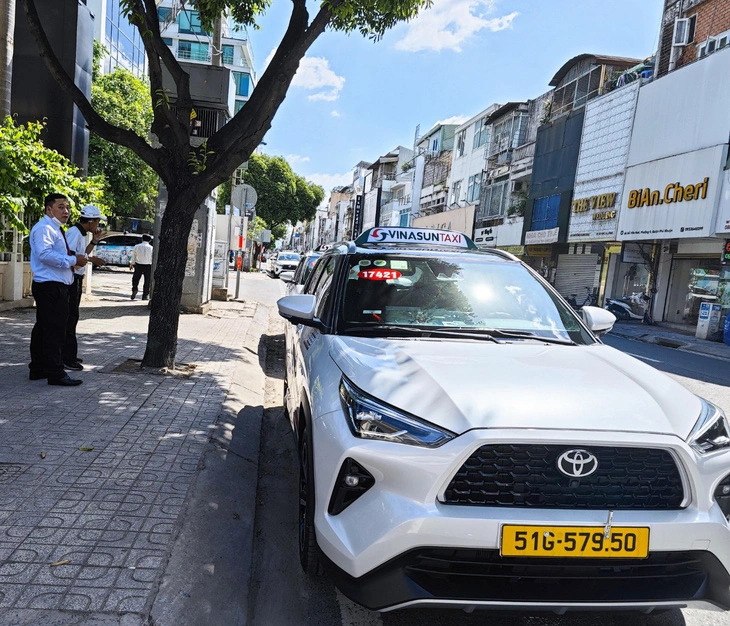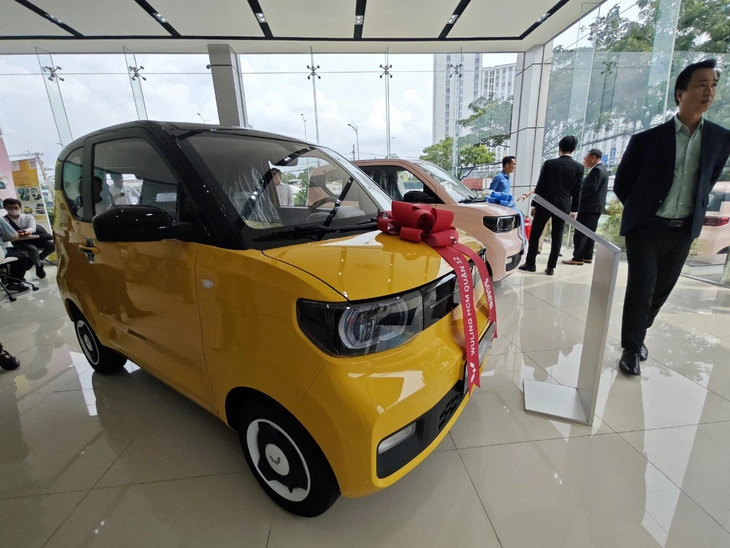Taxi firms across Vietnam are spending tens of millions of U.S. dollars on new vehicles to help children get to and from school, and drinkers arrive home safe and sound.
Dang Thanh Duy, general director of Ho Chi Minh City-based Vinasun, said that the company has invested VND630-650 billion ($24.9 - 25.7 million) this year in 800 hybrid cars, mostly Toyota Yaris and Innova models.
Though its fleet has been updated, Vinasun has managed to keep its prices steady.
For the first 30km of a trip, Vinasunc charges VND17,400 ($0.69) per kilometer. This fare goes down to VND14,500 ($0.57) from the 31st kilometer forward.
Vinasun's current plans also include the purchase of an additional 2,000 Toyota hybrids in 2025.
Traditional taxi firms like Vinasun are renewing their fleets in order to compete with EV taxi operators such as Xanh SM and other tech-based ride sharing apps, such as Grab, Be, and Gojek.
Mai Linh, another conventional taxi firm in Ho Chi Minh City, also plans to update its fleet.
According to company representatives, plans are underway to purchase 10,000 new cars over the next three years, including 2,224 for major markets like Hanoi and Ho Chi Minh City, with over 1,000 of these expected to be hybrids.
While many firms are opting for hybrids in order to avoid the challenges of charging EVs, others are looking to go fully electric.
|
|
| Mini electric cars are displayed at a showroom in Vietnam. Photo: Cong Trung / Tuoi Tre |
Some of these companies include MaiLove in north-central Nghe An Province, En Vang in northern Hai Phong City, Lado in Lam Dong Province in the Central Highlands region, and Bach Dai Dung in north-central Ha Tinh Province, all of which boast massive fleets of fully electric cars acquired through outright purchases, leasing, and lease-to-buy agreements.
Vo Quoc Binh, a representative of Togo Group JSC in Ho Chi Minh City, said his company has signed a contract to buy 2,000 Wuling Mini EV electric cars to transport people to and from work and children to and from school.
Local parents are on the hunt for safe ways to get their children to and from school, Binh said.
His firm hopes to solve that problem by offering transportation services to school-aged students at prices ranging from VND3.7 million ($146) to VND4.9 million ($194) per month.
In addition, the company will offer free transportation to drinkers who need to be driven home from drinking joints.
It plans to work with local businesses to run free pick-up and drop-off services from eateries, restaurants, hotels, and spas.
In June 2024, Deputy Prime Minister Le Minh Khai issued a dispatch asking the Ministry of Transport to preside over and coordinate with relevant agencies in proposing solutions for supporting transportation companies as they transition to EVs.
Like us on Facebook or follow us on Twitter to get the latest news about Vietnam!



















































